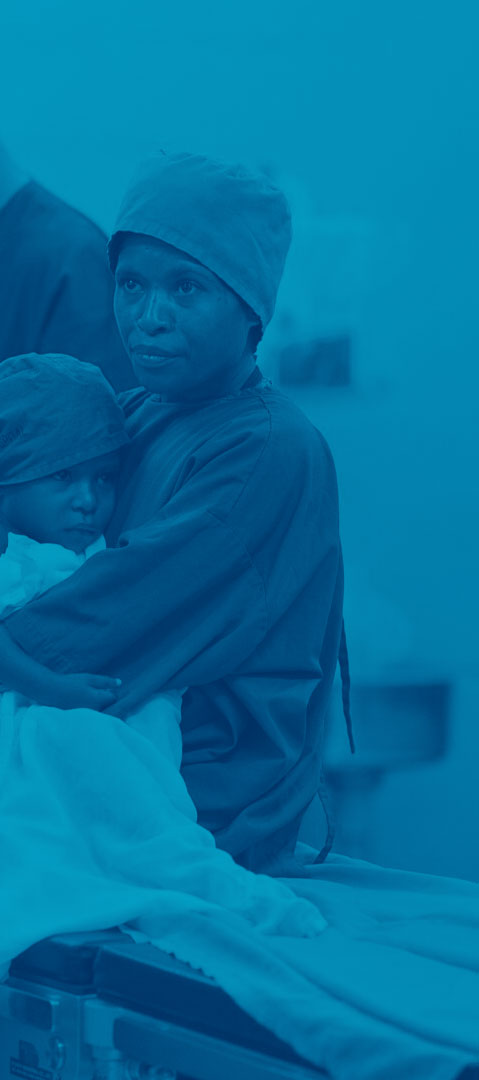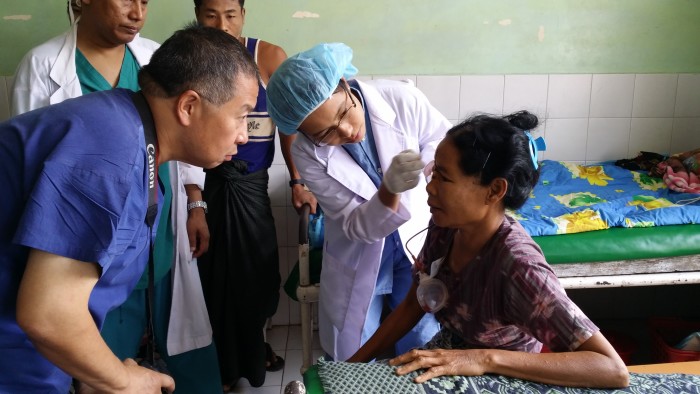Country Information
Myanmar (Burma) has a population of over 52.8 million (WHO,2016). Life expectancy at birth is 69 for females and 65 for males (WHO, 2016), and the infant mortality rate is 46 per 1000 live births (WHO,2018). Total health expenditure per capita is just US$103 (WHO, 2014).
Myanmar is currently in demographic transition, moving slowly towards an ageing population.
It is currently facing the double burden of communicable and non-communicable diseases (NCDs). Chronic NCDs with shared modifiable risk factors – tobacco use, unhealthy diet, physical inactivity and harmful use of alcohol include cardiovascular disease, diabetes mellitus, cancer and chronic respiratory disorders.
Trauma is a major cause of mortality and morbidity in Myanmar – with a large portion of this being road trauma, followed by assault, falling from height, burns and machine/industrial injury. As well as this, advanced, late-presenting cancer means that advanced head and neck cancers requiring complex reconstruction are prevalent.
Program History
Interplast has worked in Myanmar since 2001 where assistance has focused on improving access to plastic and reconstructive surgery services. With a high demand for services to treat patients suffering debilitating deformities, it was evident the reliance on visiting teams was not a sustainable solution to service provision.
To address the shortage of trained local plastic surgeons, Interplast successfully applied for a grant from the Australian Government in 2003 to initiate the development of plastic, maxillofacial and oral surgery training and service provision in Burma in cooperation with the Myanmar Ministry of Health. The program required a long-term commitment (minimum six years) to train local surgeons to establish and deliver the country’s first local postgraduate training program in reconstructive plastic surgery in cooperation with the University of Medicine 1 . During this time, Interplast trained four surgeons from the Department of Plastic, Maxillofacial and Oral (PMO) Surgery at Yangon General Hospital (YGH) in the sub specialties of paediatric reconstructive surgery, microsurgery, general plastic and reconstructive surgery and burns surgery.
Due to years of program suspension after Cyclone Nagis, the loss of a number of key local staff, and the change within Myanmar.
Interplast is now working with its local partners to deliver a regular training/mentoring program of reconstructive surgical training and nurse education, based within the Department of Plastics, Maxillofacial and Oral Surgery at the Yangon General Hospital. This program is run in conjunction with the University of Medicine 1, focused on the Masters and Postgraduate trainees. The first of these training/mentoring visits was in February 2014, and they have been delivered 3 times per year since. Interplast is also supporting trainees from Myanmar to undertake both short and long-term training placements in Australia, to complement the training delivered in Myanmar.
Current programs
In partnership with the University of Medicine 1, and the Yangon General Hospital, Interplast is now delivering regular training/mentoring programs to Yangon, focusing on advanced training for the local plastic surgeons, with recent enhancements including anaesthetic and nurse education. The surgical training program forms part of the Myanmar Doctorate of Plastic Surgery and Master of Plastic Surgery programs. Alongside the surgical mentoring, Interplast is delivering specific nurse education programs which focus on building local capacity in the post operative care of advanced reconstructive surgical patients.
Interplast is also working in collaboration with local partners in Myanmar to support surgical, anaesthetic and nurse trainees from Myanmar to undertake short and medium-term training placements in Australia, which form part of their formal training program in Myanmar.
For more information, keep an eye on our Calendar of Program Activities, or get in touch with us.


